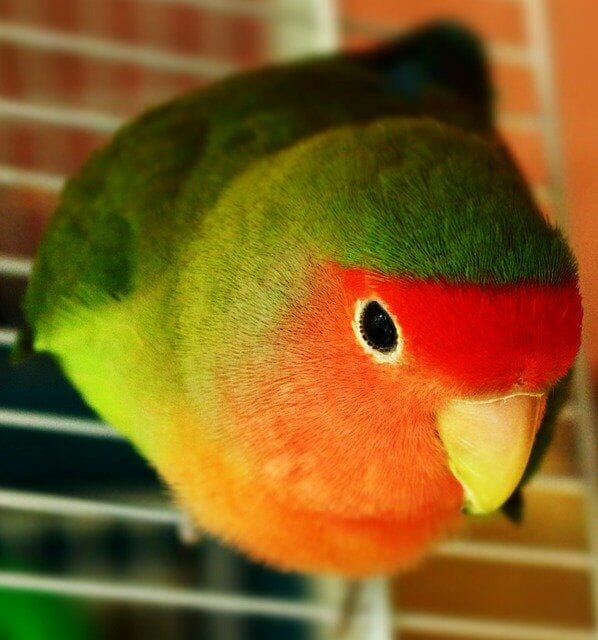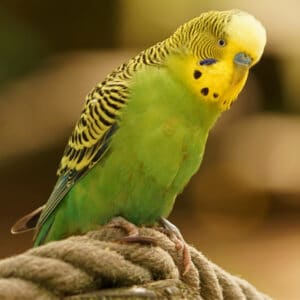Last Updated on by Mitch Rezman
Lisa K writes:
I have a very hormonal lovebird.
Very. Hormonal.
To the extent that he is wearing the feathers away from his body from rubbing against his perch and his tail is all scraggly from grabbing it with his foot to balance himself.
At first, I was taking him to the “best avian vet in the state” who wanted to give him monthly shots at $45 a pop.
Why are Veterinarians Injecting this Poison into our Birds?
She didn’t mention light therapy at all.
The last one did absolutely nothing to curb his activities.
He also regurgitates frequently on his leg, then hops down to the floor of his cage and eats it.
Then I ran across your website and read voraciously.
I purchased a light with a timer and did the 3 days, which had zero effect.
The piece I read didn’t mention minimal food and contact.
Do you have a comprehensive set of instructions?
Find them in this post entitled How Pet Bird Keepers Get The Lighting Thing Wrong
Also, since I started the 168 hours, it seems like he is not getting enough sleep, even though I cover his cage.
I’ve been changing his toys out frequently and try to engage him in other activities to no avail.
I’m afraid he’s doing damage to his digestive tract.
Can you help us?
Greetings Lisa,
I’m sorry for the problems you are having with your lovebird.
Firstly do we know if it’s a boy or girl?
If you’re not sure here’s an easy way to check your lovebird’s sex.
Have you looked at the output closely to determine if it’s vomiting or regurgitation?
These are two different actions reflecting two separate triggers that must be examined.
We talk about the differences between regurgitation and projectile vomiting here.
Help For a Green cheek Conure’s Projectile Vomiting
The “rubbing against his perch ” is masturbation I would advocate producing at least a single soft rope perch and a couple of small whiffle balls to reduce the abrasive friction.
RE: his tail is all scraggly from grabbing it with his foot to balance himself.
A bird will balance itself by gripping with 2 feet, not one.
Is it possible the bird is sleeping on a coarse hard perch causing damage to his feet?
Regurgitation is a normal behavioral reaction within your bird to show affection to mates, partners, and young ones (and the owner).
However, chronic regurgitation may result in symptoms including:
Persistent regurgitation can result from weight loss due to dehydration.
How often do you weigh your bird to determine weight loss?
An electrolyte disturbance can result in calcium and phosphorus imbalances.
Unnatural regurgitation or vomiting can be caused by infections, organ diseases, improper nutrition, poison, and possible drug reactions.
I hope this information helps you to drill down to determine the trigger(s) of this unfortunate behavior.
Best
MitchR
Author Profile
Latest entries
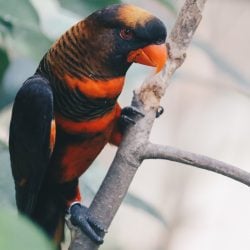 Bird & Parrot AnatomyJune 25, 2025How a Tiny Chemical Modification Makes Parrots Nature’s Living Paintings
Bird & Parrot AnatomyJune 25, 2025How a Tiny Chemical Modification Makes Parrots Nature’s Living Paintings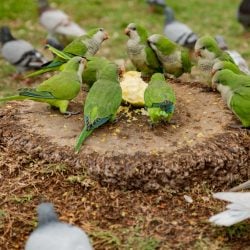 PigeonsJune 20, 2025How Do Parrots Thrive in Cities Outside Their Native Habitats?
PigeonsJune 20, 2025How Do Parrots Thrive in Cities Outside Their Native Habitats?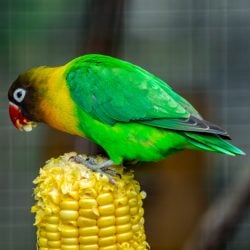 Feeding Exotic BirdsJune 20, 2025Is Corn On the Cob Safe for Pet Birds?
Feeding Exotic BirdsJune 20, 2025Is Corn On the Cob Safe for Pet Birds? Bird & Parrot AnatomyJune 19, 2025Would You Like a Comprehensive Guide for Training Your Bird?
Bird & Parrot AnatomyJune 19, 2025Would You Like a Comprehensive Guide for Training Your Bird?
